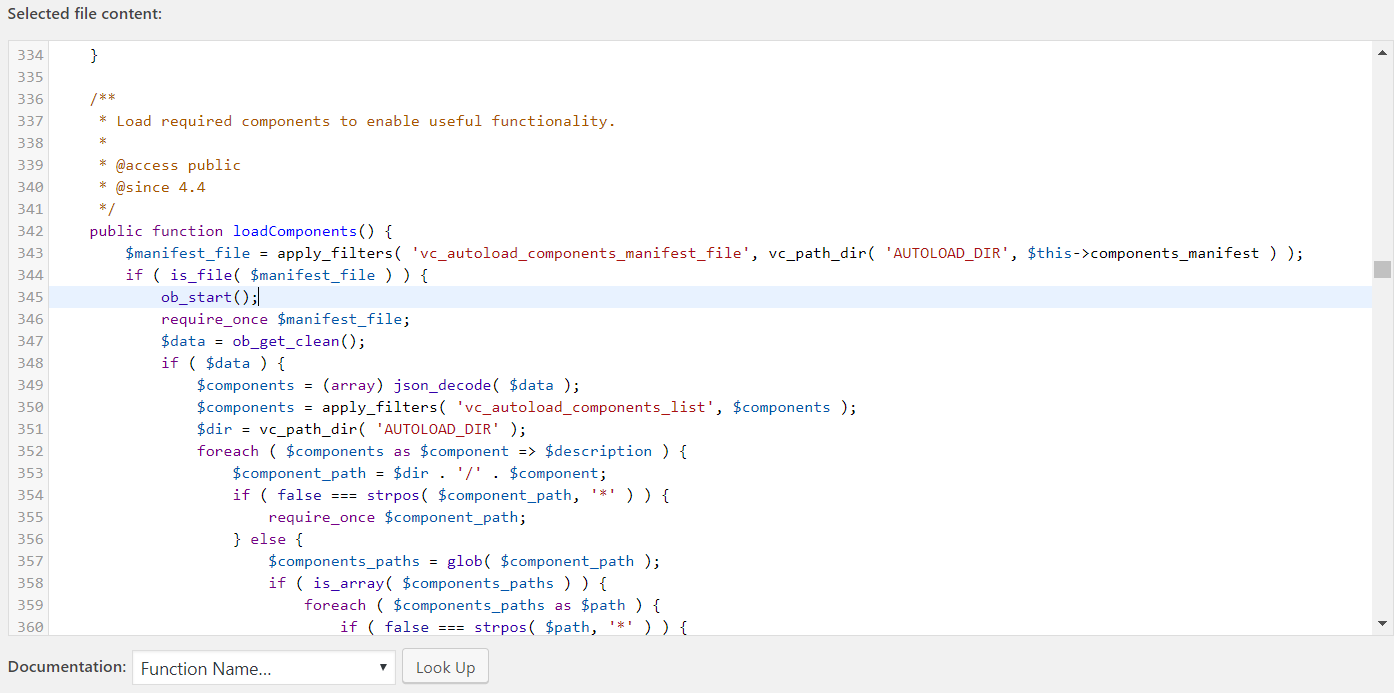
Ah, WordPress website ?development?. As a 12 year old, PHP was a lot of fun. It was extremely easy to get intobutalsodifficulttomaster, and a lot of fun meeting people and sharing code on various esoteric bbForums online. Really takes me back.
The other week, I was asked by a local community center that I volunteer for to ?donate my time? by building them a website. Now, don?t get me wrong. I love to volunteer, especially when it means cooking food for the homeless (and the networking with other business owners that entails), but to set up a WordPress website for no pay is just degrading, especially when even the paid projects amount to $4/hr virtual slave labor. Naturally, I declined the lucrative $0 offer.
Here are a few reasons I never use WordPress for website and web application development.
Cheap Themes
Almost nobody needs a custom WordPress theme these days. Just look at what it says on the front page of ThemeForest?s WordPress section:

That?s right. 40,540 WordPress Themes & Website Templates From $2. Sure, the more expensive themes go for $65 USD, but hey,that?sstilladropinthebucketforthiskindofwork. An average one-time payment of $35 is the market value of ?web design?. If you know how to follow YouTube tutorials, you don?t need to hire somebody to set up a beautiful content-only website for you.
Alternatively, you can become one of those theme developers and sell them online at volume ($50 * 5,000 downloads can go a long way), but that?s a business in itself and it?s not something I?m stoked about, especially the prospect of hiring and managing a customer support desk for constant theme-related feature requests.
?Empowered? Clients & Their Expectations
Cheap WordPress themes are a boon to any developer, but the problem is that once any of your clients get a whiff of this, they?ll immediately assume that ?WordPress is easy?, so when they ask you to configure the theme they just purchased they figure they can get away with paying you some small fixed hourly wage for your time.
The big problem here is the disparity between what the client sees on a flat computer monitor and the work you know you?ll have to do once you get beyond simple theme configurations and the client starts to ask for more advanced feature requests.
 What do you mean we can?t incentivize open-source channels by envisioneering leading-edge infomediaries!? I went to Twitter?s website page yesterday and they have it. Why can?t you just do what they did?
What do you mean we can?t incentivize open-source channels by envisioneering leading-edge infomediaries!? I went to Twitter?s website page yesterday and they have it. Why can?t you just do what they did?
In contract theory and economics, information asymmetry deals with the study of decisions in transactions where one party has more or better information than the other. This asymmetry creates an imbalance of power in transactions, which can sometimes cause the transactions to go away, a kind of market failure in the worst case.
When it comes to WordPress ?development?, the client?s initial expectation of a cheap plug-and-play website and your knowledge of the engineering requirements to build out a feature-rich web application create an information asymmetry whereby the moment the client is not getting the advanced features they requested for cheap they will think you?re obfuscating the difficulty (and market value) of the feature request in such a way that you appear to be cheating them.
Balancing your client?s expectations with a reasonable schedule of deliverables is a challenge, especially as the project becomes more complex. In my personal experience, building a custom WordPress theme is just not worth the reward if the contract is worth less than $10,000.
A part of me wonders why the market tolerates this, and I?ve come to the conclusion that most web developers are just high in trait agreeableness, making them terrible negotiators. If their clients put on the pressure, they fold and offer to work at the lower suggested rate. On the aggregate, this creates a game-theoretic equilibrium in which nobody is willing to stand their ground, lest they lose out on work that they, by an ironic and self-fulling twist of fate, now desperately need.
 I?m looking to make an AirBnb website but for lonely people who like cuddling kittens. Can you do that for $500? I think it?ll be really simple. Here, just use this theme I found. It was cheap.
I?m looking to make an AirBnb website but for lonely people who like cuddling kittens. Can you do that for $500? I think it?ll be really simple. Here, just use this theme I found. It was cheap.
?Just? Move This There, And Shift That There
?Just.? The most despised word in web development.
Okay, so a basic, configurable theme is cheap, and you?ll find that you can drag and drop your way to becoming an expert web ?developer? in no time, but then sometimes you hit a wall. The client asks if you can ?just? make a Calendar feature with user authentication that allows members of the organization to sync their personal Gmail calendar events to the website, and on and on with feature requests? for a plugin you did not develop.

Well. Sounds good, bubs! How about you just take a look at the source code for me while I have my coffee. Oh, and when I get back it better be done! I?m sure you?ll find it?s really simple:

Given that your client is likely not willing to pay more for these customizations, you?ll have to become creative about declining work, and that in itself is quite stressful.
You Are Now A Writer
Congratulations, you now copy-write for a living.
Now that you?ve downloaded, installed, and configured your client?s theme? and managed to deliver their impossible plugin customizations just barely under budget, they?re going to ask you to write content for their website in order for their small business to rank well locally on Google.
You can always tell them that SEO is a different line of work, but they?ll always blame you if their site doesn?t rank anyway. And if you don?t deliver, word will spread that you?re a terrible web developer.
I know this makes absolutely no sense, but it?s true. Time to pony up and learn how to write well, update your client?s blog once a week with unique, keyword-relevant content, and throw your Computer Science degree in the trash.

The Bottom Line
If you?re only now just getting into web development, make absolute sure not to get sucked into the trap of ?flipping a few WordPress sites? here and there to pay the bills.
You may be tempted at first by the prospect of purchasing a few $50 themes, and selling the completed website to local SMBs (small/medium-sized businesses) for $1500 a pop, but you?ll quickly run into all the problems mentioned above; that is, nit-picky clients, a low real average wage, and time wasted copywriting as opposed to investing in a real software development education.
I don?t think there?s a positive takeaway from this. The key here is to just forget that WordPress exists. Focus on your stack, whether that?s LAMP, WISA, MEAN, or whatever else, and hold out for your big projects, the kinds where you can really leverage your deep expertise in Node.js, MongoDB, JavaScript, React and whatever other technologies you have in your arsenal.

Re-packaging existing WordPress themes and writing search-engine optimized content to sell websites to SMBs will wear you out, numb yourmind, and eat away at the limited time you have sharpen your real web development stack. Ditching WordPress is a no-brainer in a highly competitive, fast-evolving market.
Too Long;Didn?t Read
- Cheap, easily configurable themes allow anyone to make a basic WordPress website, driving down the cost of web design.
- Managing client expectations is costly. This is because of an information asymmetryinthemarket, i.e. setup is cheap, customizations are complex and non-trivial.
- If you?re interested in client retention at all, most of your time will be eaten up writing blog content to rank them on local Google searches. So you?ll also have to get into SEO and copywriting to build a viable business.
- Designing websites with WordPress for SMBs in order to ?pay the bills? while you learn more profitable stacks is too time-consuming. It?s never worth it. Just hold out for your whales. Otherwise, find a full-time job where you?re actually coding in JavaScript all day long until you find that big client.
Avoid WordPress ?development? at all costs.

Martin is Lead Project Manager at Selotec. You should follow him on Twitter.


